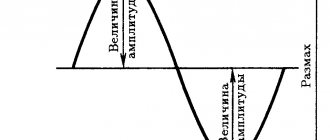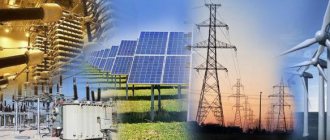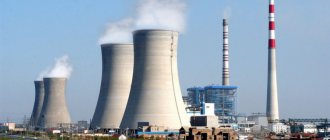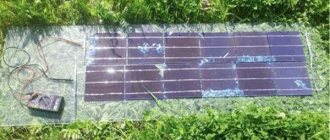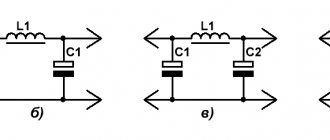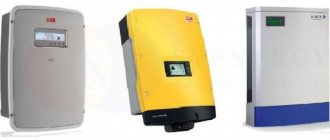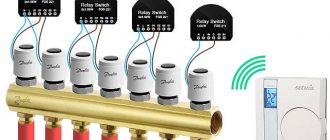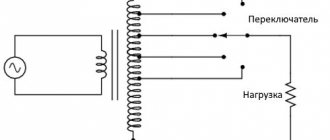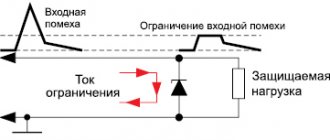Brief description of the specialty
The profile “Electrical power and electrical engineering” is part of the technical environment, which involves the use and improvement of electrical appliances and the training of qualified energy specialists who are able to successfully operate, maintain and repair special equipment. Agree that it is almost impossible to imagine reality and the world without electrical appliances. After all, even now you are reading this article with the help of a gadget, a computer, which is somehow “powered” by electricity, and therefore is an electrical appliance!
Electric power concept
The Electric Power and Electrical Engineering program is a general direction that emphasizes the main work qualities and points:
- Graduates will have to work in a specific segment - the electric power industry;
- Their work will be related to the operation, maintenance, repair, improvement of modern devices, tools, networks, etc.;
- Specialists will have to strictly observe safety precautions to preserve their own lives and health, because they do not play with electric current.
The scope of application of certified specialists of this plan is wide due to the wide range of positions, vacancies and acquired skills and competencies: from a simple electrician, electrical network installer, electrical equipment repairman to a power engineer, engineer, circuit designer, electrical system designer, etc.
Specialty: 140409 Electricity supply
The specialty of electrical supply touches many industries. Needless to say, it is now difficult to imagine an apartment or house without electricity, and industrial production is not possible at all without it. It is when obtaining this specialty that industry specialization is extremely important. After all, you must agree that the power supply to railways is significantly different from, say, chemical production or, even more so, from public utilities.
Professions:
The list of professions is extremely large and varies from industry to industry and company to company. Most of them begin with the word electrician , although there are also electrical technician, power engineer, electrical equipment specialist and others. This is a cable line electrician, a contact line electrician, an overhead line electrician, a traction substation electrician, a distribution network electrician and a substation maintenance electrician.
Admission exams:
- Russian language
- Mathematics or physics (at the choice of the educational institution)
Main subjects:
Education in the specialty consists of three main cycles: humanitarian, natural science and professional.
Basic subjects in the professional cycle:
- electrical and Electronics
- Materials Science
- Metrology and standardization
- Repair and adjustment of power supply devices
- Construction and maintenance of power supply networks
- Relay protection and automatic control systems for power supply devices
- Construction and maintenance of electrical substations
- Safety during operation and repair
At least 70% should be devoted to cycles, while the remaining 30% allows the educational institution to teach the specifics of the direction and provide in-depth knowledge in specific areas.
The educational internship lasts 27-30 weeks.
Duration of training:
Basic training
- Upon completion of 11 classes – 2 years 10 months
- Upon completion of 9 classes – 3 years 10 months
Advanced training
- Upon completion of 11 classes – 3 years 10 months
- Upon completion of 9 classes – 4 years 10 months
For students in the evening (full-time/correspondence) or correspondence departments, the terms of study will be extended by one year based on 11 grades and up to one and a half years on the basis of 9 grades.
Skills and abilities acquired during training:
- Read and draw electrical diagrams
- Carry out maintenance and repair of substations and electrical networks
- Diagnose the condition of networks and substations
- Ensure safety during work
Composition of the educational program “Electrical power engineering and electrical engineering”
Let's figure out how and what students are taught within this specialization.
Disciplinary training is divided into thematic blocks, which gradually immerse students in the profession, concretizing their knowledge around a specific scientific field and practice. The fundamental subject is physics in all its subtypes and manifestations.
Educational process of students
The basic part of the program is taught during the first two courses. It is designed to prepare initial knowledge and minimal (basic) understanding and skills of future specialists. This module includes the following disciplines: general developmental - history, mathematics, Russian language, computer science, foreign language, cultural studies, sociology, philosophy, physics, chemistry, economics, information technology, fundamentals of mechanics, etc.
The core part of the training of future power engineers and electrical engineering specialists involves immersion in the disciplines. Developing relevant skills: mechanics, metrology and standardization, fundamentals of electrical engineering, technical mechanics, high voltage technology, energy supply, power plants, electric machines and units, electric drive, energy saving in electrical engineering and power engineering, electronics, ecology and environmental management, electrical and electronic devices, power electronics, design of electrical devices and units, operation of electrical systems and electrical equipment, etc.
The formation of future experts in the energy environment involves not only theoretical immersion, but also the implementation of practical tasks:
- To test and supplement the theoretical base - independent and test work, reports and abstracts, problem solving, work at seminars and workshops;
- Development of specific qualities within the framework of a certain science, general training - laboratory work, internship on the basis of existing energy companies under the supervision of an experienced mentor, generation of reports on practice, conducting scientific research%
- Research activities for a deeper immersion in the profile and development of scientific and technological progress: coursework, scientific articles, research, participation in conferences;
- Certification and control of acquired knowledge: tests (simple and differentiated), exams, testing, state assessments, defense of thesis or dissertation, etc.
It is important to note that completing these projects is mandatory for every student. He will encounter some research and work only once during his entire studies and life, while others he will encounter more often (several times a semester/week, etc.).
Writing scientific papers
Carrying out student and research work during the learning process is designed to develop specific skills: taking into account current standards and safety rules, accuracy, the ability to calculate and design each step/decision, justify a proposal, maintain technical documentation, show the effectiveness of measures, optimize the industry/company activities, improve technology/methodology of work or equipment, introduce innovations, etc.
A mandatory part of research and development work is the preparation of the following sections:
- The theoretical chapter should cover the basic terms, concepts, canons on the topic, emphasizing the importance of the problem and its unresolved nature if well developed;
- The practical part involves conducting an analysis (problem diagnosis) using the example of an object (city, region, enterprise, etc.), designing an action to solve the problem (planning, justification, technological process, economic efficiency), forecasting the results or testing, developing recommendations for the implementation of the proposal . It is important to note that a student cannot do without calculations, design, all kinds of graphic materials and drawings.
Certified specialists must have up-to-date information on their profile, know and use current standards and regulations, regulations, plan events, use innovations, and develop scientific and technical (“electric power”) progress.
The key skills of specialists in the field of electrical power and electrical engineering are: reading drawings, designing equipment and systems, installing and operating equipment/units and machines, rational use of energy resources, designing electrical systems, introducing innovations, etc.
About the direction:
Electric power industry is one of the leading branches of energy, which includes the sale, transmission and production of electricity. This branch of energy is considered important because it has great advantages relative to other types of energy, namely: distribution between consumers, it is easy to transport over long distances and convert into other energy (thermal, mechanical, light, chemical, etc.). A distinctive feature of electrical energy is its simultaneity in energy generation and consumption, since electric current travels through networks almost at the speed of light.
At this time, there are several types:
Thermal power engineering.
The principle is this: the combustion energy (thermal) of organic fuels is converted into electrical energy. The thermal power industry includes thermal power plants - condensing and district heating.
Nuclear energy.
It includes nuclear power plants. The principle of generating electricity is similar to energy generation at thermal power plants. The difference is that thermal energy is obtained by fission of atomic nuclei in a reactor, and not by burning fuel.
Hydropower.
This type of energy generation includes hydroelectric power plants. Here, the energy of water flow (kinetic) is converted into electricity. With the help of dams, an artificial difference in surface levels on rivers is created. Under the influence of gravity, water from the upper pool flows through special channels into the lower compartment. There are water turbines in the ducts, their blades are spun by the water flow.
The direction “Electrical power engineering and electrical engineering” represents a part of science and technology, which includes a set of means, methods and methods of activity created for the use of electrical energy, control of its flows, direct and reverse conversion of other types of energy into electrical energy.
The objects of professional activity of a bachelor are:
- electrical machines, electromechanical complexes and systems, including their control and regulation;
- complexes and systems of electromechanical and electronic devices;
- automatic devices and systems for controlling energy flows;
- electrotechnological, electric welding and electrophysical installations and processes;
- various types of electric transport and means of ensuring the optimal functioning of transport systems;
- elements and systems of electrical equipment of cars and tractors;
- electrical power systems;
- electrical facilities of industrial enterprises;
- all factory low-voltage and high-voltage electrical equipment, electrical installations, networks.
Graduates with a degree in Electrical Power Engineering and Electrical Engineering are always in demand specialists in the labor market. Upon completion of training, graduates of this profile successfully find application of their knowledge in energy companies, industrial, motor transport, agricultural enterprises, design and research organizations. They can work in the following positions: energy engineer, chief energy engineer, process engineer, site manager, industrial power engineer, city power grid engineer.
Job prospects by profession
A graduate of this specialty can apply for work in various fields of activity. These can be a variety of production and technological organizations that are engaged in the production, transmission and distribution of electricity.
Mostly graduates occupy positions as software engineers, electrical systems developers, electric drive engineers and others. Specialists in the fields of electric power, industry, mechanical engineering, and transport are in demand.
In Russia, there are quite large and promising organizations that always need specialists in electrical power engineering and electrical engineering. Here we can immediately talk about Gazprom LLC, Lenenergo OJSC or Roselektroprom Holding CJSC. These and other large enterprises have many partners, which suggests the need for specialists to work at these enterprises.
Earnings will range from 20-35 thousand hryvnia depending on the enterprise and position.
Advantages of Master's Degree Studies
Every bachelor's degree graduate has the opportunity to enroll in a master's program (“Electrical power engineering and electrical engineering” - 04/13/02). Continuing education always involves an in-depth program that allows you to expand your range of perspectives.
In the master's program, the student undergoes training in the management of electrical power systems, as well as their maintenance and improvement. Here he will study the design and research of electric drives.
Masters in this specialty are in demand abroad, not to mention Russia. They may be needed both as teachers and researchers. Enterprises will primarily hire highly qualified specialists who have completed a master's degree.
